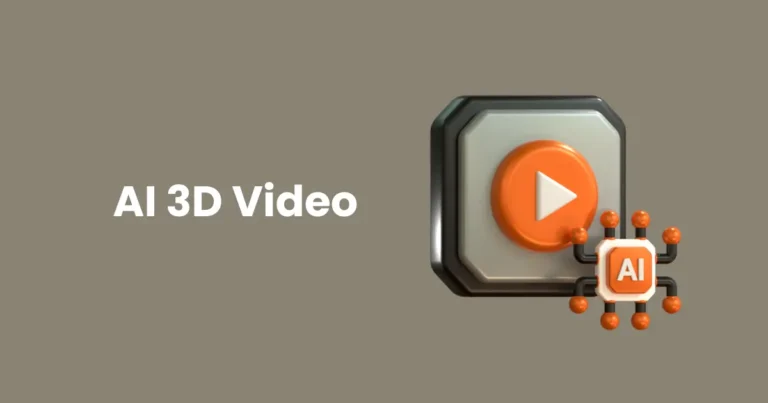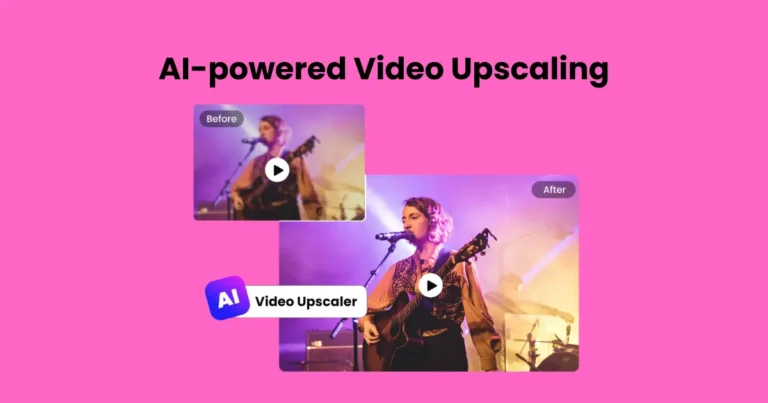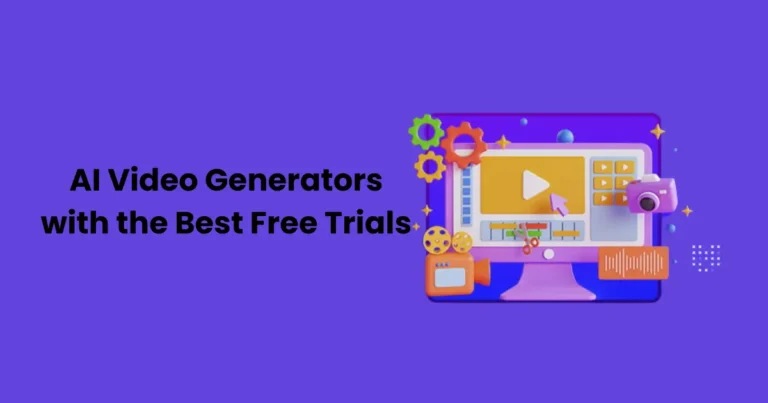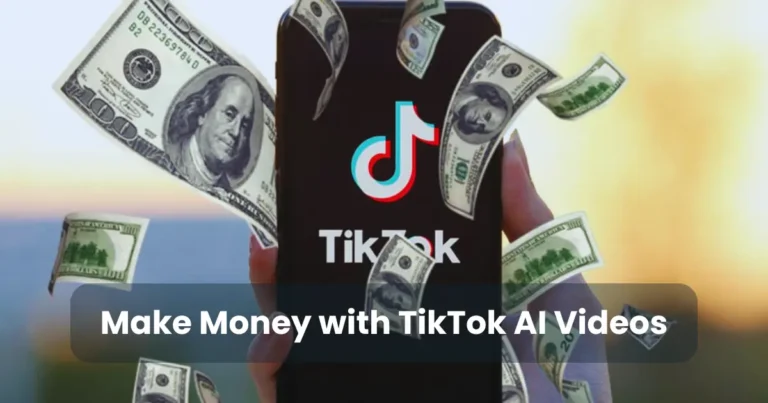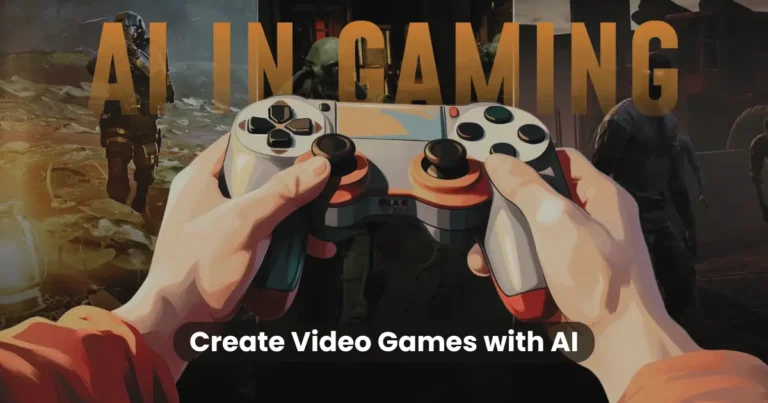AI Video Marketing Trends & Strategies

Contents
- 1 Current AI Video Marketing Trends
- 2 Effective AI Video Marketing Strategies
- 3 Benefits of AI in Video Marketing
- 4 Challenges & Ethical Considerations in AI Video Marketing
- 5 Future of AI in Video Marketing
- 5.1 1. Emerging Technologies & Innovations
- 5.2 2. The Rise of AI-Generated Avatars & Virtual Influencers
- 5.3 3. Hyper-Personalized AI Video Experiences
- 5.4 4. AI-Driven Real-Time Video Optimization
- 5.5 5. AI-Powered Augmented Reality (AR) & Virtual Reality (VR) Integration
- 5.6 6. Ethical AI & Regulatory Advancements
- 5.7 7. The Role of AI in Next-Gen Video Advertising
- 5.8 Conclusion
AI video marketing trends & strategies are revolutionizing the way businesses create, distribute, and optimize video content. As artificial intelligence continues to evolve, marketers are leveraging its capabilities to enhance personalization, automate video production, and improve audience engagement. AI-powered tools enable brands to analyze vast amounts of data, predict consumer behavior, and deliver highly targeted video content.
With the increasing demand for video content across digital platforms, AI-driven marketing solutions have become essential for businesses seeking to stay competitive. From automated editing and AI-generated scripts to predictive analytics and interactive videos, artificial intelligence is transforming every aspect of video marketing. By adopting AI video marketing trends & strategies, businesses can enhance their content’s effectiveness, maximize audience reach, and improve return on investment (ROI).
In this article, we will explore the latest AI video marketing trends, discuss effective strategies, and highlight the benefits and challenges of using AI in video marketing.
Current AI Video Marketing Trends
The rapid advancement of artificial intelligence has significantly transformed video marketing. Businesses are now integrating AI-driven tools to enhance video content creation, improve personalization, and optimize marketing strategies. Below are the most prominent AI video marketing trends shaping the industry.

1. AI-Powered Video Personalization
AI enables brands to tailor video content based on user behavior, demographics, and preferences. By analyzing data such as browsing history, interactions, and past purchases, AI delivers highly relevant videos that resonate with specific audiences. Personalized video recommendations on platforms like YouTube and Netflix demonstrate the effectiveness of this trend.
2. Automated Video Editing & Creation
Advanced AI tools such as Runway ML and Synthesia automate video editing by cutting unnecessary footage, adjusting lighting, and even generating deepfake-style videos. AI-powered video generators allow brands to create professional-quality videos in minutes, reducing production costs and time.
3. AI-Driven Video Analytics & Insights
AI analyzes viewer engagement, watch time, and interaction rates to optimize video marketing strategies. Real-time analytics help marketers understand what works best, enabling them to refine their content and maximize impact. AI-powered insights ensure data-driven decision-making for better campaign performance.
4. Interactive & Shoppable Video Content
AI enhances engagement by integrating interactive elements into videos. Shoppable videos allow viewers to make purchases directly from the video interface, creating a seamless e-commerce experience. AI-driven interactivity increases conversions by providing a personalized shopping journey.
5. Voice & Text-to-Video AI Innovations
AI-powered tools such as Pictory and Synthesia convert text-based content into engaging videos. These solutions generate AI-driven voiceovers, subtitles, and animations, making it easier for brands to produce high-quality video content without extensive manual effort. This trend is especially useful for businesses looking to scale video marketing.
The adoption of these AI video marketing trends continues to grow, offering businesses innovative ways to enhance their digital marketing efforts. By leveraging AI-powered solutions, brands can streamline content creation, boost engagement, and improve their overall marketing effectiveness.
Effective AI Video Marketing Strategies
To maximize the benefits of AI in video marketing, businesses must adopt strategic approaches that enhance content creation, audience targeting, and campaign optimization. Below are the most effective AI video marketing strategies that can help brands achieve better engagement and higher conversion rates.

1. Leveraging AI for Audience Targeting
AI analyzes vast amounts of user data, including demographics, preferences, and behavior, to identify the right audience for video content. Machine learning algorithms optimize video distribution by ensuring that the right videos reach the right viewers at the right time. This data-driven targeting increases engagement and improves ad performance.
2. Using AI-Generated Content for Engagement
AI-powered tools like Synthesia and DeepBrain AI generate realistic videos using avatars and voiceovers, reducing production costs and time. Brands can use AI-generated videos for product demonstrations, explainer videos, and personalized messages, making content more engaging and scalable.
3. Optimizing AI Video Ads for Better ROI
AI-driven platforms such as Google Ads and Meta AI optimize video ad placements by analyzing user interactions and predicting ad performance. Automated bidding strategies ensure that ad budgets are used efficiently, maximizing conversions and minimizing costs. AI also enhances A/B testing by continuously improving ad creatives based on real-time performance data.
4. AI-Powered SEO for Video Marketing
AI enhances video search engine optimization (SEO) by analyzing trending keywords, optimizing video descriptions, and generating automatic transcripts. AI tools such as TubeBuddy and VidIQ suggest the best titles, tags, and metadata to improve video discoverability. This increases the chances of ranking higher on YouTube and Google search results.
5. AI-Based A/B Testing for Performance Improvement
AI enables brands to conduct A/B testing on video content, analyzing which variations perform best with different audience segments. AI-driven insights help marketers refine video thumbnails, headlines, call-to-actions (CTAs), and overall video structure to maximize engagement and conversion rates.
By integrating these AI video marketing strategies, businesses can enhance their video marketing campaigns, reach their target audience effectively, and improve overall performance. AI-driven innovations continue to reshape the digital marketing landscape, providing brands with advanced tools to create high-impact video content.
Benefits of AI in Video Marketing
The integration of artificial intelligence in video marketing offers numerous advantages, from automation to data-driven decision-making. By leveraging AI-powered tools, businesses can enhance content creation, improve audience engagement, and optimize marketing strategies. Below are the key benefits of AI in video marketing that make it an essential part of modern digital marketing.

1. Increased Efficiency & Cost Savings
AI automates video editing, script generation, and content repurposing, reducing the time and cost required for video production. AI-powered tools like Pictory and Runway ML streamline post-production tasks, enabling brands to create high-quality videos with minimal resources.
2. Enhanced User Engagement & Retention
AI improves audience engagement by personalizing video content based on user behavior and preferences. AI-powered recommendation engines, such as those used by YouTube and Netflix, analyze viewer interactions to suggest relevant videos, increasing watch time and retention rates.
3. Data-Driven Decision-Making
AI-driven analytics provide valuable insights into video performance, helping marketers optimize their content strategy. Metrics such as audience demographics, watch time, and engagement rates allow businesses to make informed decisions and adjust their campaigns for better results.
4. Scalability & Automation Advantages
AI enables businesses to scale their video marketing efforts by automating content creation and distribution. AI-powered platforms generate multiple versions of a video tailored for different audience segments, ensuring maximum reach and impact. This scalability is especially useful for brands managing large-scale digital campaigns.
5. Improved Video SEO & Discoverability
AI enhances video SEO by optimizing keywords, generating accurate transcripts, and suggesting metadata improvements. AI-driven tools like VidIQ and TubeBuddy analyze search trends and recommend the best strategies to increase video visibility on search engines and social media platforms.
By utilizing AI, businesses can streamline video marketing processes, enhance audience engagement, and achieve better results with minimal effort. The growing adoption of AI-powered tools highlights the importance of embracing artificial intelligence in video marketing strategies.
Challenges & Ethical Considerations in AI Video Marketing
While AI-driven video marketing offers numerous advantages, it also presents several challenges and ethical concerns. Businesses must address these issues to maintain transparency, build trust, and ensure responsible AI usage. Below are the key challenges and ethical considerations in AI video marketing.

1. Deepfake Risks & Misinformation
AI-generated videos, including deepfakes, can be used to manipulate audiences by spreading misinformation or creating misleading content. This poses ethical concerns, especially in political campaigns, social media marketing, and brand endorsements. Businesses must ensure that AI-generated content remains authentic and does not deceive viewers.
2. AI Bias in Video Recommendations
AI algorithms rely on data to personalize video recommendations, but biases in data collection can lead to unfair or misleading content distribution. Platforms like YouTube and TikTok have faced criticism for reinforcing certain narratives while limiting diverse perspectives. To mitigate this, companies must regularly audit AI systems to promote fairness and inclusivity.
3. Privacy & Data Security Concerns
AI-driven video marketing relies on collecting and analyzing user data, raising privacy concerns. Consumers are increasingly aware of how their data is used, and businesses must comply with regulations like GDPR and CCPA to protect user privacy. Transparent data policies and secure AI-driven marketing practices are essential to maintain consumer trust.
4. Ethical Use of AI-Generated Content
AI-generated content can blur the lines between human creativity and automation. Over-reliance on AI tools for video production may reduce authenticity, making it crucial for brands to balance AI-generated content with human creativity. Clear disclosure of AI involvement in content creation can help maintain credibility.
5. Job Displacement & Workforce Adaptation
As AI automates video production and editing tasks, concerns about job displacement in the creative industry have emerged. While AI enhances efficiency, businesses should invest in reskilling employees and integrating human expertise with AI-powered solutions to ensure a balanced approach.
Addressing these AI video marketing challenges requires businesses to adopt ethical guidelines, ensure transparency, and prioritize responsible AI usage. By implementing best practices, brands can leverage AI effectively while maintaining trust and credibility in the digital marketing landscape.
Future of AI in Video Marketing
The future of AI in video marketing promises groundbreaking advancements that will further revolutionize content creation, audience engagement, and advertising strategies. As artificial intelligence continues to evolve, businesses will gain access to even more sophisticated tools for automation, personalization, and optimization. Below are the key trends shaping the future of AI in video marketing.

1. Emerging Technologies & Innovations
AI is expected to introduce advanced generative video models that can create high-quality videos from simple text prompts. Technologies like OpenAI’s Sora and Google’s Lumiere will enable marketers to generate realistic and engaging videos without extensive production costs. This will make high-quality video content more accessible to businesses of all sizes.
2. The Rise of AI-Generated Avatars & Virtual Influencers
AI-powered avatars and virtual influencers are gaining popularity in digital marketing. These AI-driven characters can represent brands, interact with audiences, and create personalized video content. Companies like Samsung’s NEON and Meta’s AI avatars are paving the way for virtual brand ambassadors, which will become more common in the future.
3. Hyper-Personalized AI Video Experiences
Future AI systems will provide even more precise audience targeting by analyzing biometric data, emotional responses, and real-time engagement. AI will create videos that adapt dynamically to user preferences, delivering hyper-personalized experiences tailored to individual viewers.
4. AI-Driven Real-Time Video Optimization
AI will enable real-time video content optimization, adjusting elements such as visuals, music, and voiceovers based on user feedback and engagement metrics. This will help brands refine their marketing strategies instantly, maximizing the effectiveness of their campaigns.
5. AI-Powered Augmented Reality (AR) & Virtual Reality (VR) Integration
AI will enhance AR and VR experiences by creating immersive, interactive video content. Brands will be able to offer virtual product demos, 360-degree storytelling, and AI-driven AR advertisements that engage audiences in new and exciting ways.
6. Ethical AI & Regulatory Advancements
As AI continues to shape video marketing, regulatory bodies will introduce stricter guidelines to ensure ethical AI usage. Transparency in AI-generated content, responsible data collection, and bias mitigation will be key focus areas for businesses and policymakers.
7. The Role of AI in Next-Gen Video Advertising
AI will refine programmatic advertising by predicting consumer behavior with greater accuracy. Automated AI-driven ad placement will optimize budgets, improve targeting, and enhance ad performance across multiple digital platforms.
The future of AI in video marketing will be defined by increased automation, deeper personalization, and immersive experiences. Businesses that embrace these advancements will gain a competitive edge, reaching audiences with more engaging and relevant video content.
Conclusion
AI video marketing trends & strategies are transforming the digital landscape, offering businesses new ways to create, distribute, and optimize video content. With AI-powered tools streamlining production, enhancing personalization, and providing data-driven insights, brands can improve audience engagement and maximize ROI.
The latest AI video marketing trends—such as automated video editing, AI-driven analytics, and interactive content—have made video marketing more efficient and impactful. Implementing AI video marketing strategies, including AI-powered audience targeting, optimized video ads, and AI-enhanced SEO, allows businesses to stay ahead in a competitive market.
Despite its benefits, AI in video marketing also presents challenges and ethical considerations, such as misinformation risks, data privacy concerns, and AI bias. As AI continues to evolve, businesses must adopt responsible practices to ensure transparency and trust in their marketing efforts.
Looking ahead, the future of AI in video marketing will bring even more advanced technologies, including generative AI video models, hyper-personalization, and AI-integrated AR/VR experiences. Brands that embrace these innovations will gain a competitive edge by delivering highly engaging and immersive video content.
By leveraging AI effectively, businesses can enhance their video marketing strategies, improve audience connections, and drive long-term success in the ever-evolving digital world.

